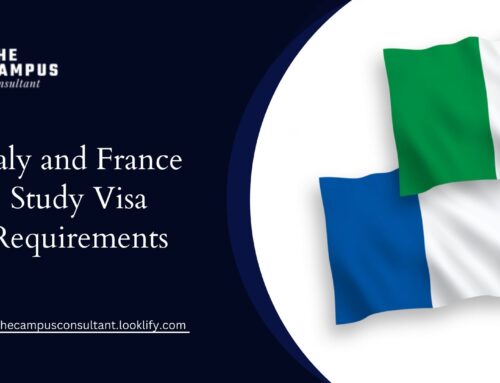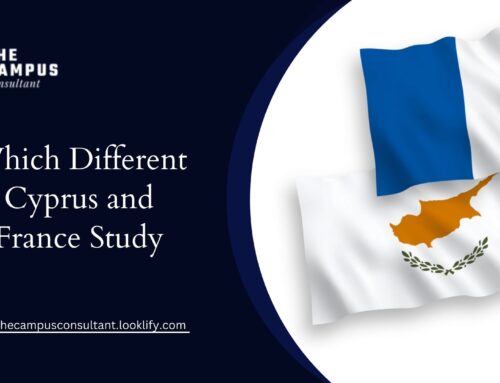Studying abroad is an exciting venture, and Austria has emerged as a favored destination for international students. Understanding the visa requirements is crucial for a smooth transition into Austrian academic life. Let’s delve into the essential aspects that every international student should know. Austria, with its rich cultural tapestry and esteemed education system, beckons international students seeking academic excellence. Navigating the visa requirements is a crucial aspect of the journey, ensuring a seamless transition into Austrian academic life. In this article, we unravel the intricacies of visa requirements for international students, providing insights into the types of visas, eligibility criteria, application processes, and essential considerations. Join us on this informative expedition as we shed light on the pathway to studying in the heart of Europe – Austria.
Types of Visas for International Students
Student Visa (Type D)
The primary visa for international students enrolling in a degree program in Austria. It is valid for the duration of the course. Before diving into the application process, it’s imperative to understand the eligibility criteria. International students seeking a Student Visa (Type D) for Austria must have an acceptance letter from a recognized educational institution. Additionally, proof of financial means to cover living expenses and tuition fees is a key requirement.
National Visa (Type D)
Applicable for students attending preparatory courses or language programs before their main academic program begins. The National Visa (Type D) is designed for individuals planning an extended stay in Austria, exceeding 90 days. This can include students, researchers, employees, or those reuniting with family. Understanding the specific purpose of your visit is crucial, as it determines the category of the National Visa.
Eligibility Criteria
To obtain a student visa, several eligibility criteria must be met:
- Enrollment in a recognized educational institution.
- Proof of financial capability to cover living expenses.
- Mandatory health insurance coverage.
Application Process
The application process involves:
- Online submission of the application.
- A comprehensive checklist of required documents.
- Awaiting the visa processing time, which may vary.
Visa Interview
The visa interview is a crucial step, testing the applicant’s genuine intent to study in Austria. Prepare by familiarizing yourself with common questions and practicing your responses. Before stepping into the interview room, ensure a thorough understanding of your visa application. Be ready to articulate the purpose of your stay, the details of your accommodation, and how you plan to finance your time in Austria. Familiarity with your application reflects sincerity and preparedness. First impressions matter. Opt for professional attire that aligns with the seriousness of the occasion. A well-groomed appearance not only showcases respect for the process but also reflects your commitment to adhering to Austrian regulations.
Accommodation Arrangements
Proof of residence is a key requirement. Explore options for student accommodations provided by universities or private entities. Navigating the process of accommodation arrangements is a crucial aspect of planning your stay in Austria. In this guide, we will delve into the intricacies of finding suitable accommodation, ensuring a comfortable and seamless living experience during your time abroad. The location of your accommodation is crucial. Consider proximity to your educational institution, public transportation, and amenities. Vienna, Graz, and Innsbruck are popular cities, each with its unique charm.
Part-Time Work Regulations
While studying, students are allowed to work part-time. Understanding the regulations is vital to maintain a balance between work and studies. For international students in Austria, exploring part-time work opportunities can be a valuable aspect of their overall experience. Understanding the regulations governing part-time employment is essential to ensure compliance with Austrian laws while embracing professional growth. In this comprehensive guide, we will unravel the intricacies of part-time work regulations for international students in Austria.
Language Proficiency Requirements
Austria requires proficiency in German for many programs. Language tests and certifications play a pivotal role in meeting this criterion. Austria, with its rich linguistic heritage, places a significant emphasis on language proficiency, making it a crucial aspect for international students. This guide aims to unravel the language proficiency requirements, providing comprehensive insights for students aspiring to pursue their education in Austria. Austria boasts a multilingual environment with German being the official language. However, English is widely used, especially in academic settings. Understanding the linguistic landscape is vital for a seamless integration into both academic and social spheres.
Renewal and Extension Procedures
Understanding the renewal and extension procedures is essential to avoid any disruptions in your academic journey. Stay informed about deadlines and requirements. As an international student in Austria, understanding the procedures for renewing and extending your visa is essential for a seamless and uninterrupted stay. In this comprehensive guide, we will unravel the intricacies of the renewal and extension process, providing valuable insights to ensure a continued and enriching experience.
Cultural Adaptation
Adjusting to a new culture can be challenging. Utilize support services provided by universities to ease the transition into Austrian life. Austria boasts a unique blend of traditions, art, and history. Familiarize yourself with the local customs, traditions, and social norms to foster a deeper connection with the Austrian way of life. While many Austrians speak English, making an effort to learn German can significantly enhance your cultural experience. Attend language classes, engage in language exchange programs, and practice your skills with locals for a more immersive stay. Universities in Austria offer a plethora of extracurricular activities and clubs. Joining these activities not only enhances your academic experience but also provides opportunities to connect with fellow students and make lasting friendships.
Financial Planning
Budgeting wisely is crucial for international students. Explore scholarships and financial aid opportunities to alleviate the financial burden. One of the primary financial considerations is tuition fees. Research and understand the specific fees associated with your chosen program, considering whether you are enrolling in a public or private institution. Austria’s cost of living varies across cities. Factor in accommodation, food, transportation, healthcare, and other miscellaneous expenses when creating your budget. Online cost of living calculators can assist in estimating these expenditures. Identify all potential income sources, including scholarships, part-time work, financial aid, or support from family. Accurate knowledge of your financial inflows is essential for effective budgeting.
Legal Obligations
Compliance with Austrian laws is non-negotiable. Violating visa terms can lead to serious consequences. Stay informed and adhere to all regulations. International students must adhere to the initial visa requirements set by Austrian authorities. This includes submitting accurate documentation, attending visa interviews, and complying with the conditions stipulated in the visa approval. Upon arrival, secure a residence permit. This permit is essential for the duration of your stay and must be renewed as required. Familiarize yourself with the expiration date and initiate renewal processes well in advance. Adherence to academic regulations is paramount. Enroll in courses within the specified deadlines, attend classes regularly, and fulfill academic requirements to maintain your student status.
Healthcare Access for Students
Understanding the healthcare system is vital. Ensure you have the necessary insurance coverage for any medical expenses that may arise. Prioritizing health is an integral part of the international student experience in Austria. This guide aims to provide a comprehensive overview of healthcare access, ensuring that international students can navigate the Austrian healthcare system with ease and maintain their well-being throughout their academic journey. Health insurance is mandatory for all international students in Austria. It is a prerequisite for enrollment in educational institutions and is essential for accessing healthcare services. Comprehensive health coverage ensures that students have access to medical care in case of illness or emergencies.
Post-Study Opportunities
Explore opportunities for employment after graduation. Understand the job search process and the requirements for obtaining a work permit. Austria boasts a robust job market with opportunities in various sectors. Research the job market relevant to your field of study, considering industry demands, salary expectations, and potential employers. Utilize online job search platforms, company websites, and networking events to explore job opportunities. Platforms like LinkedIn, Jobwohnen, and Karriere.at are popular for job listings and professional networking. The Red-White-Red Card is a residence and work permit designed to attract skilled workers to Austria. Graduates from Austrian universities may be eligible for this permit, providing a pathway for long-term employment.
Summary
In summary , navigating the visa requirements for international students in Austria is a crucial step towards a successful academic journey. Be proactive, adhere to the guidelines, and embrace the cultural richness that Austria has to offer.







Leave A Comment